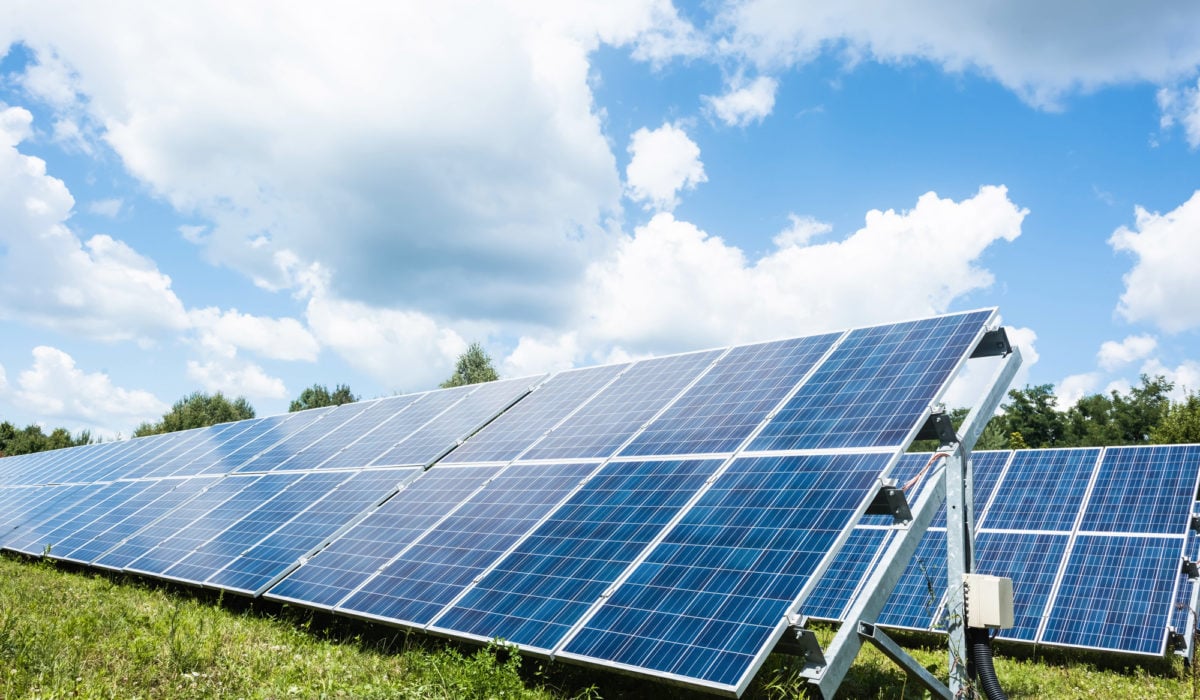- 0 Comment
Do Solar Panels Work When It’s Cloudy?
If we say energy has become the basic necessity for humans, most people will find it hard to deny. Right? Even the people from the developed countries will term it as a proven fact. People use electricity generated from different means. Some use energy from non-renewable sources, while others use renewable energy like solar energy.
Renewable Energy
These types of energies are derived from the natural sources of the earth, which are infinite. Like wind and sunlight. This energy is an alternative to traditional power that relies on fossil fuels. Renewable energy is not very dangerous to an environment. With the changing environment patterns, it is necessary to convert to renewable energy.
Examples
Some common examples of renewable energy and its sources are:
- Wind energy produced by the wind turbines
- Solar power obtained from the light of the sun.
- Hydropower obtained from flowing water and
- Bio energy obtained from plants and fossils.
Solar Energy
This type of energy is rapidly replacing other methods of generating electricity. The use of solar panels has been spread worldwide in the past decade. As per assumptions, the number of solar system fittings has reached in millions. The numbers seem like they have doubled within a few years.
What is a Solar Panel?
Having a short overview for your better understanding of the topic. The panels of the solar system consist of numerous smaller units. They are called solar cells. Their work is to gather light provided by the sun. Then they change sunlight into direct power.
This power is also known as photovoltaic energy; it means light or photo-electricity. The panel generates such an amount of electricity, enough for 1 or 2 smaller appliances. For the proper system of solar energy, multiple panels are attached within the series.
The Benefits of Solar Energy
This type of energy is considered most efficient. The benefits lie within it.
- The impact of solar energy on the environment is least negative compared to the other available energy sources.
- Solar energy is applicable everywhere; the prerequisite is only sunlight.
- It reduces the chances of accidents by improving grid security.
- It reduces your monthly energy bill, sometimes even zero, if you have an adequate battery system.
- It provides more energy during the peak hours when energy needs are high and also the rates.
- The loss of electricity is almost negligible as compared to conventional long-distance transmission.
- Does not produce any sound or other kind of pollution.
Would Solar Panels Work in Cloudy Weather?
Looking at these benefits, everyone finds it a much better option to install the solar system for their homes and offices. But here arises a question. Does the solar system work in cloudy weather? The simple answer is yes! They do work in a hazy atmosphere. However, the efficiency will be decreased as compared to a hot sunny day.
Are you surprised by the fact that solar works in the cloudy weather? You are indeed not alone. Suppose if you are completely relying on solar systems for the electricity need of a home. You have to understand how much these solar panels can be a reliable power source during cloudy weather when there is less sunlight availability.
On a cloudy day, production is around 10 to 25% of the average output. It depends on the thickness of the cloud cover. Interestingly, in some conditions, the solar panels work better on a sunny day contrasted with the cloudy day. Solar panels do not work best in scorching weather.
The Special Type of Panels
This part will be better understood by the person who has come in contact sunburned on a cloudy day. This happens due to the fact; solar radiation penetrates clouds. However, it depends on the thickness of the cloud cover.
Solar panels have been observed working on a record-breaking efficacy of more than 20% during the cloudy and dusty weather in several conditions. The cells are designed in a way that they capture a broader range of sunlight. They consist of blue and red wavelengths. They produce more energy than the nominal panels on a cloudy day. It makes an optimal choice for cloudy weather.
Some solar panels are designed with a “backside mirror” that uses a slim layer of aluminum. This recoils light photons. Those who left are not absorbed on their first pass through a cell back into the cell. They provide another chance for absorption. The result is the better output of electrons despite the same input of sunlight.
How does it manage the Difference?
Here arises one more question that how the system fulfills the excess demand in the cloudy weather. When the power supply drops to less than 25 percent. There is the installation of a proper storage mechanism within the system.
Storage of a Solar Battery
The solar system is designed to generate more power than what your home needs. During a standard day-time, the excess power produced by the panels during peak hours is stored in the solar battery.
At the timing of cloudy weather and night times, when the solar panels are on rest mode or working on low capacity. The stored energy that the battery system holds can be used to power your house or office. Many houses that have this kind of setups are operating off-grid: utterly autonomous of utility.
Summary
Summarizing the discussion, the system of solar panels does work on cloudy days. However, the efficiency is dependent on your solar panel brand and weather conditions. Investment in solar solutions is a worthy investment. It does not only fulfill your daily requirement. The extra amount of energy can be sold to the national grid. You earn credits against your electricity by selling extra energy.

